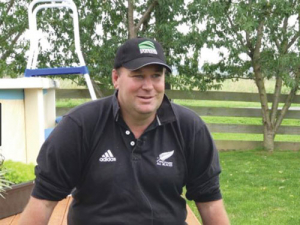When people say New Zealand should be a leader in agricultural climate change technology and systems, Feds climate change spokesman Andrew Hoggard says he gets “pissed off”.
“We are already a leader, if you look at carbon footprint per km of land or per kilo of milk solids or whatever,” he told Dairy News.
“Most things we produce we are already producing at world’s best or we are setting the target for world’s best. I don’t know how much more of a leader you can be.
“People need to eat food so the goal surely is to produce the food at the lowest possible footprint which NZ farmers are doing. To me that is leadership.
“Undoubtedly there are things we can do even better, because other countries will try to take that leadership mantle off us.
“But I get really pissed off when I hear these people saying ‘we should be leaders’. They are ignoring the reality that we are already doing pretty bloody good on a whole range of things in this space.”
He was responding to the report ‘A Zero Carbon Act for New Zealand’ by the Parliamentary Commissioner for the Environment (PCE), Simon Upton, which makes nine recommendations, among them to set up a climate change commission similar to a UK model. The idea is supported across the political spectrum in NZ.
The Feds insist that actions to tackle climate change can work if there is cross-party support backed by a climate commission informed by science.
Hoggard says more thinking is needed globally about how agriculture is treated. Rather than lumping everything together, action needs to be more strategic in recognising the world’s populace needs food, he says.
“We need to produce food at the lowest possible footprint… and have a scheme that works well across the planet,” says Hoggard.
“I heard a great presentation a couple of years ago from the international vice-president of the World Wildlife Fund who advocated strongly for more free trade as one of the solutions.
“Where you have countries trying to be self-sufficient in producing all their own food, often they are trying to go against nature.
“All these dairy farms in the middle of Saudi Arabia are a great example. What a waste of resources and energy: they are sucking out of the ground the water they desperately need, they are buying in feed from half the world away, all so they can produce [dairy] locally. Why not just buy it from any one of the other countries – NZ, US, EU? It makes more sense.
“That is part of the solution. It is quite humorous in the fact that mostly if you look at the likes of CPTPP and most trade deals, it is generally the green and environment groups that seem to be opposed to them. In fact they should be right behind them.”











